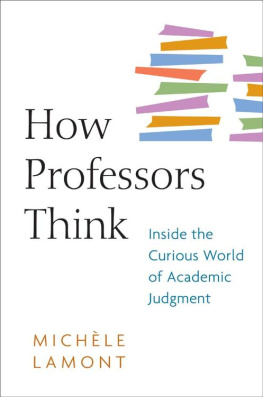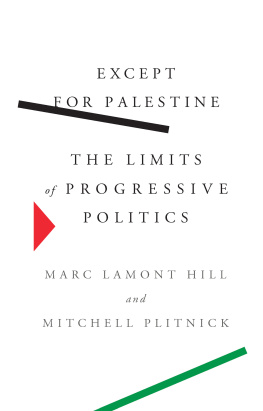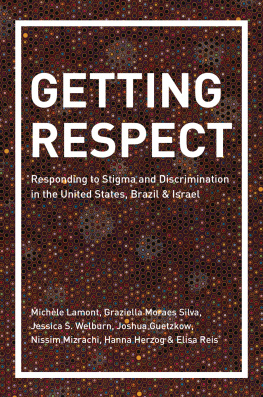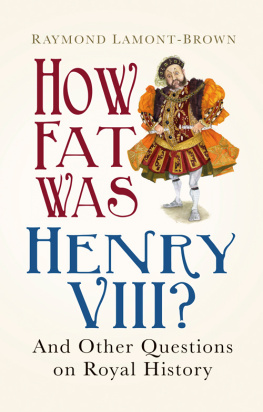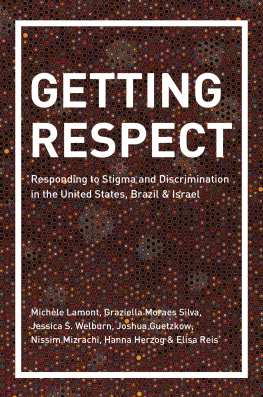Michèle Lamont - How Professors Think
Here you can read online Michèle Lamont - How Professors Think full text of the book (entire story) in english for free. Download pdf and epub, get meaning, cover and reviews about this ebook. year: 2009, publisher: Harvard University Press, genre: Politics. Description of the work, (preface) as well as reviews are available. Best literature library LitArk.com created for fans of good reading and offers a wide selection of genres:
Romance novel
Science fiction
Adventure
Detective
Science
History
Home and family
Prose
Art
Politics
Computer
Non-fiction
Religion
Business
Children
Humor
Choose a favorite category and find really read worthwhile books. Enjoy immersion in the world of imagination, feel the emotions of the characters or learn something new for yourself, make an fascinating discovery.
- Book:How Professors Think
- Author:
- Publisher:Harvard University Press
- Genre:
- Year:2009
- Rating:4 / 5
- Favourites:Add to favourites
- Your mark:
- 80
- 1
- 2
- 3
- 4
- 5
How Professors Think: summary, description and annotation
We offer to read an annotation, description, summary or preface (depends on what the author of the book "How Professors Think" wrote himself). If you haven't found the necessary information about the book — write in the comments, we will try to find it.
How Professors Think — read online for free the complete book (whole text) full work
Below is the text of the book, divided by pages. System saving the place of the last page read, allows you to conveniently read the book "How Professors Think" online for free, without having to search again every time where you left off. Put a bookmark, and you can go to the page where you finished reading at any time.
Font size:
Interval:
Bookmark:
How Professors Think
INSIDE THE CURIOUS WORLD OF ACADEMIC JUDGMENT
Michle Lamont

TO FRANK, AVEC AMOUR
Copyright 2009 by the President and Fellows of Harvard College
All rights reserved
Printed in the United States of America
First Harvard University Press paperback edition, 2010
Library of Congress Cataloging-in-Publication Data
Lamont, Michle, 1957
How professors think : inside the curious world of academic judgment / Michle Lamont.
p. cm.
Includes bibliographical references and index.
ISBN 978-0-674-03266-8 (cloth : alk. paper)
ISBN 978-0-674-05733-3 (pbk.)
1. College teachersRating of. 2. Peer review. 3. Teacher effectiveness. 4. Portfolios in education. I. Title.
LB2333.L36 2009
378.12dc22 2008031423
There are competing narratives about what passes for being good. There are different standards of excellence, different kinds of excellence, and Im certainly willing to entertain somebody elses standard of excellence up to a point. Im not sure that I could articulate what that point is, but Im pretty confident that Id know it when I see it. You develop a little bit of a nose for it. Particularly for whats bad.
Sociologist
Definitions of excellence come up every time. [My colleagues] feel perfectly comfortable saying, I didnt think this was a terribly good book, as if what they mean by a good book is self-apparent... What they mean seems really sort of ephemeral or elusive.
English professor
I felt like we were sitting on the top of a pyramid where people had been selected out at various stages of their lives and we were getting people who had demonstrated a fair amount of confidence and were sorting between kind of B, B+, and A scholars, and we all thought we were As.
Political scientist
E xcellence is the holy grail of academic life. Scholars strive to produce research that will influence the direction of their field. Universities compete to improve their relative rankings. Students seek inspiring mentors. But if excellence is ubiquitously evoked, there is little cross-disciplinary consensus about what it means and how it is achieved, especially in the world of research. The cream of the crop in an English or anthropology department has little in common with the best and the brightest in an economics department. This disparity does not occur because the academic enterprise is bankrupt or meaningless. It happens because disciplines shine under varying lights and because their members define quality in various ways. Moreover, criteria for assessing quality or excellence can be differently weighted and are the object of intense conflicts. Making sense of standards and the meanings given to them is the object of this book.
The Latin word academia refers to a community dedicated to higher learning. At its center are colleagues who are defined as peers or equals, and whose opinions shape shared definitions of quality. In the omnipresent academic evaluation system known as peer review, peers pass judgment, usually confidentially, on the quality of the work of other community members. Thus they determine the allocation of scarce resources, whether these be prestige and honors, fellowships and grants to support research, tenured positions that provide identifiable status and job security, or access to high-status publications. Peers monitor the flow of people and ideas through the various gates of the academic community. But because academia is not democratic, some peers are given more of a voice than others and serve as gatekeepers more often than others. Still, different people guard different gates, so gatekeepers are themselves subject to evaluation at various times.
Peer review is secretive. Only those present in the deliberative chambers know exactly what happens there. In this book I report what I have learned about this peculiar world. I studied humanists and social scientists serving on multidisciplinary panels that had been charged with distributing prestigious fellowships and grants in support of scholarly research. I conducted in-depth interviews with these experts and also observed their deliberations. During their face-to-face discussions, panelists make their criteria of evaluation explicit to one another as they weigh the merits of individual proposals and try to align their own standards with those of the applicants disciplines. Hence, grant review panels offer an ideal setting for observing competing academic definitions of excellence. That peer evaluation consumes what for many academics seems like an ever-growing portion of their time is an additional reason to give it a close look.
Academic excellence is produced and defined in a multitude of sites and by an array of actors. It may look different when observed through the lenses of editorial peer review, books that are read by generations of students, current articles published by top journals, elections at national academies, or appointments at elite institutions. American higher education also has in place elaborate processes for hiring, promoting, and firing academics. Systematically examining parts of this machinery is an essential step in assessing the extent to which this system is harmonized by a shared evaluative culture.
Evaluations of fellowship programs typically seek answers to such questions as: Are these programs successful in identifying talent? Do awardees live up to their promise? The tacit assumption is that these programs give awards to talented people with the hope that the fellowship will help them become all they can be.
By way of introduction, I pose and answer the same kinds of questions that are typically asked in peer review of completed or proposed research proposals.
I study evaluative cultures. the meaning that panelists give to criteria (for instance, how do you recognize originality?); the weight they attribute to various standards (for example, quality versus diversity); and how they understand excellence. Do they believe excellence has an objective reality? If so, where is it locatedin the proposal (as economists generally believe) or in the eye of the beholder (as English scholars claim)?
Evaluative cultures also include how reviewers conceive of the relationship between evaluation and power dynamics, their ability to judge and reach consensus, and their views on disciplinary boundaries and the worth and fate of various academic fields. Finally, evaluative cultures include whether panelists think that subjectivity has a corrupting influence on evaluation (the caricatured view of those in the harder social sciences) or is intrinsic to appreciation and connoisseurship (the view of those in the humanities and more interpretive social sciences).
I study shared standards and evaluative disciplinary cultures in six disciplines. Each presents its own characteristics and challenges. In philosophy, members claim a monopoly on the assessment of their disciplinary knowledge. In history, a relatively strong consensus is based on a shared sense of craftsmanship. Anthropologists are preoccupied with defining and maintaining the boundaries of their discipline. English literary scholars experience their field as undergoing a legitimation crisis, while political scientists experience theirs as divided. In contrast, economists view their own field as consensual and unified by mathematical formalism.
I study panelists, who are, in principle, highly regarded experts known for their good people skills and sound judgments. They have agreed to serve on grant peer review panels for a host of reasons having to do with influence, curiosity, or pleasure. Some say that they are tremendously delighted to spend a day or two witnessing brilliant minds at work. Others serve on panels to participate in a context where they can be appreciated, that is, where they can sustainand ideally, enhancetheir identities as highly respected experts whose opinions matter.
Next pageFont size:
Interval:
Bookmark:
Similar books «How Professors Think»
Look at similar books to How Professors Think. We have selected literature similar in name and meaning in the hope of providing readers with more options to find new, interesting, not yet read works.
Discussion, reviews of the book How Professors Think and just readers' own opinions. Leave your comments, write what you think about the work, its meaning or the main characters. Specify what exactly you liked and what you didn't like, and why you think so.

